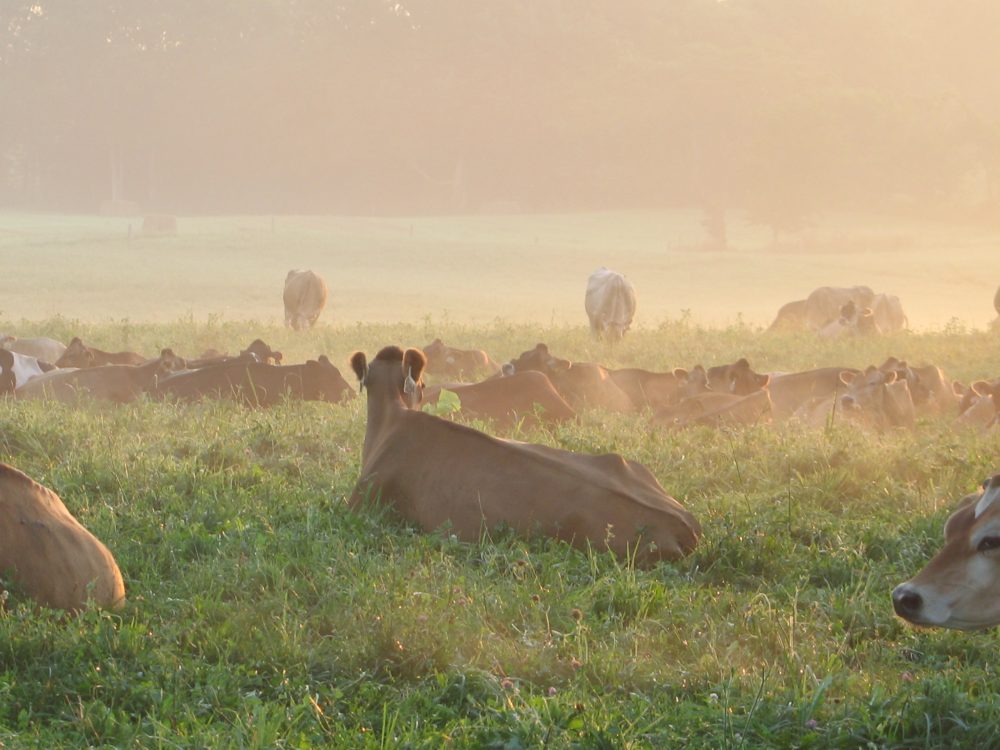
CASE STUDY: The Family Cow
New School Thinking For an Old School Farm
In 2008, Pennsylvania dairy farmer and owner of The Family Cow, Edwin Shank, secured full Organic certification for his family farm that had been in his Mennonite family for over 100 years. This should have been a cause to celebrate, but the excitement was short-lived.
The Organic certification process is a hefty investment for any farmer, but combined with the additional financial burdens from debts incurred when the farm was conventionally run almost brought his entire operation to ruin. As Shank explains, “Like most people, my family got into this business because we have a love for our animals and for farming, not because we’re business people.”
A Guide on the Path
Ted actually came to Shank’s family farm in 2011 to ask Edwin’s advice on starting a cooperative dairy business. But Edwin and Ted soon realized that they had a journey together that was much more than how to build a dairy. The bank had bluntly told the Shank’s that they should look for other financing and the entire operation was continuing to sustain substantial six figure losses. Ted took on the job, and as Edwin describes it, “We tore the company apart in all directions, and looked at where we could be profitable.” The first place they started with was the money being spent on feed for the cows. Ted wasn’t sure if there was an old Pennsylvania saying that you shouldn’t tell a farmer he has too many cows, but that’s exactly what he told Edwin. Understandably, Edwin was not happy about this and did not want to cull his herd. As Ted explains, “I thought this advice was going to get me fired.” But as Ted, Edwin and Rodrick, (Edwin’s oldest son) explored the concept of “Feed Independence & Rightsizing,” they began to understand that if they had the appropriate amount of cows for the size of his grazing lands, he could buy less feed and thus save the money that was bleeding from the farm business (organic hay was costing them over $500 per ton). They also completely revamped the accounting system, and decided to base the accounting for both operations on “Cost of Goods Sold.” Although this is a method more suitable to retail and Manufacturing operations and not farming operations, Ted and Edwin figured out how to make this an efficient system for both operations.
Speaking the Language of Business
As Ted laments, too often financial institutions can intimidate family farmers with jargon they don’t understand. But as Edwin explains, “Ted’s consulting helped us understand these concepts, and build credibility with the bank to convince them to not make us find alternative financing. We kept our track record.” Along with that important win, Edwin is also pleased with everything he and his family gained. He is pleased that after business tutelage from Ted, Edwin’s son Rodrick now has an extremely advanced understanding of business operations. As Edwin likes to say, “It’s as if Rodrick went to business school without ever leaving the farm.”
Farming for the Future
Edwin is also pleased that after twelve months of working with Ted, the entire business broke even in 2013. After a second full year in 2014, the combined businesses had a very nice profit. The farm is still only breaking even, but The Family Cow is proving to be a formidable revenue source for the business and a trusted food source for families across Pennsylvania.
When asked what advice Edwin would give future clients of Kitchen Table Consultants, he says, “The question when you get a consultant is, ‘Should we do it because it costs money?’ But it’s a no brainer. We would have been out of business without Ted. I wish would have met him a few years ago. But he saved us where we were.”